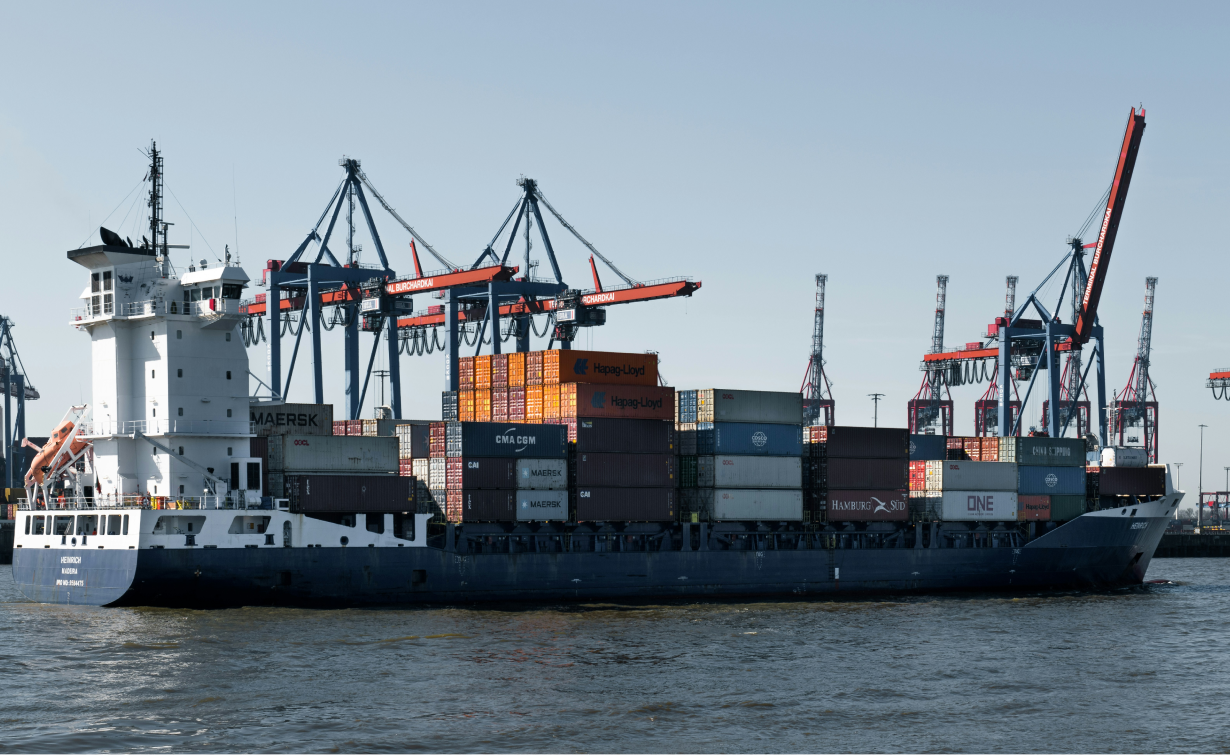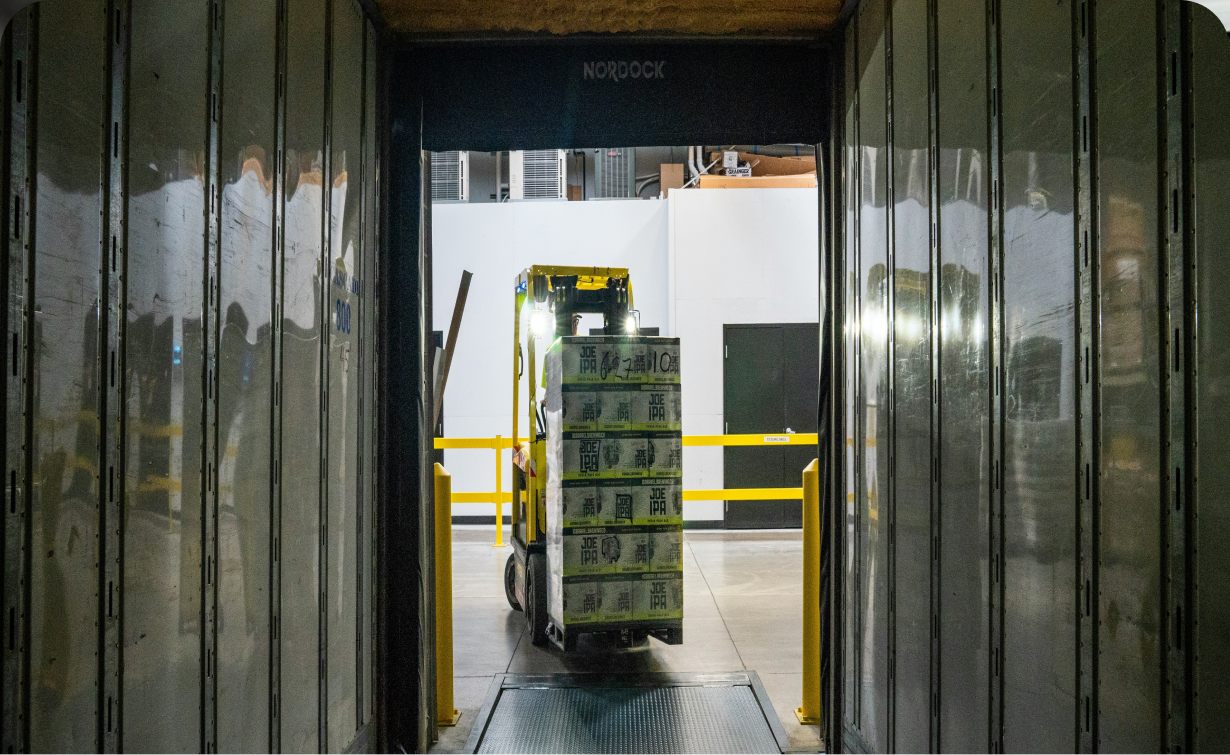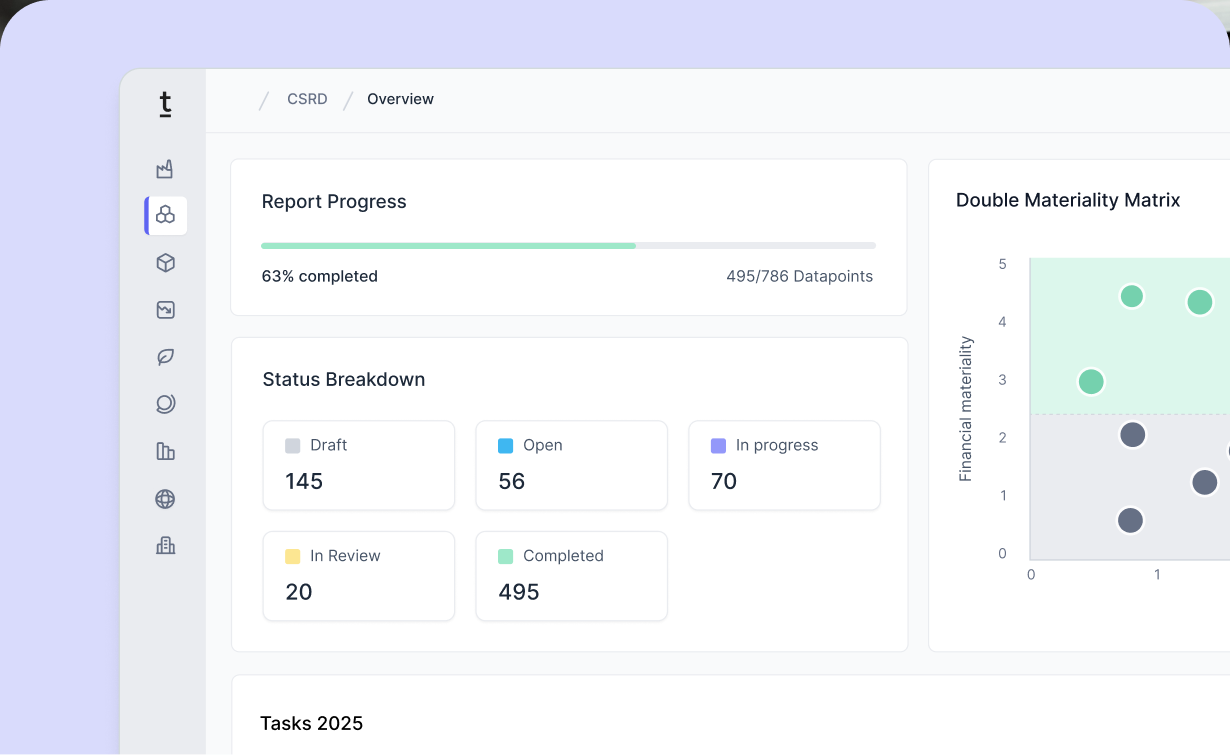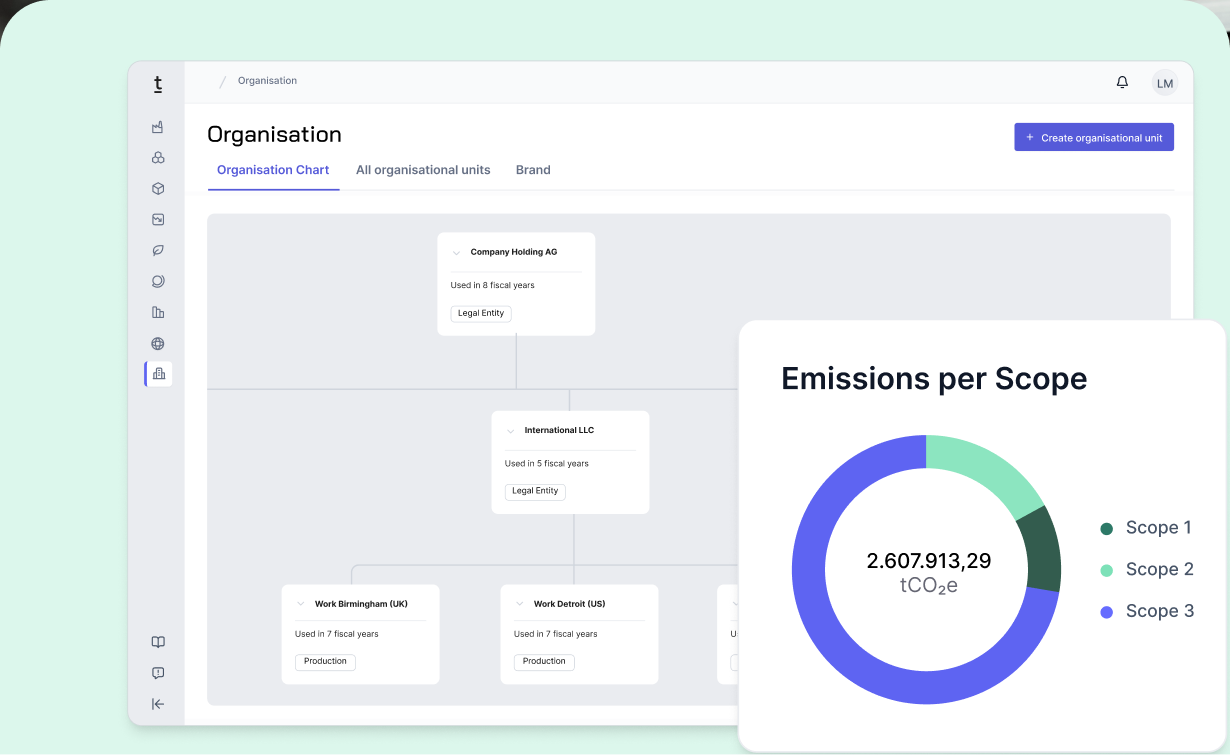EcoVadis Rating explained: How the sustainability assessment works

What is EcoVadis?
EcoVadis is a globally active provider of sustainability ratings that analyzes and evaluates companies based on their Environmental, Social, and Governance (ESG) performance. These ratings help companies manage ESG risks and transparently communicate their efforts to stakeholders and auditors.
Founded in 2007 and headquartered in Paris, EcoVadis aims to provide companies worldwide with comparable, objective, and reliable assessments.
The evaluations are based on an evidence-based methodology that is regularly reviewed and further developed by an international scientific committee.
EcoVadis' methodology is based on international standards such as the Global Reporting Initiative (GRI), the United Nations Global Compact (UNGC), and the ISO 26000 standard. The assessment is carried out using 21 sustainability indicators, grouped into four key themes: Environment, Labor & Human Rights, Ethics, and Sustainable Procurement. Both the quality of the submitted documents and their relevance to the respective questions are evaluated.
Relevance and impact of EcoVadis
The EcoVadis rating is particularly important for manufacturing companies, as more and more customers and business partners are placing value on transparent sustainability standards throughout the entire supply chain. A strong result in the assessment can not only strengthen customer loyalty but also facilitate access to tenders and strategically address regulatory requirements such as the Corporate Sustainability Reporting Directive (CSRD).
An EcoVadis rating offers companies the opportunity to systematically review and purposefully improve their own sustainability performance. The rating creates transparency, can strengthen the trust of customers, partners, and investors, and supports the early identification and mitigation of risks.
The EcoVadis assessment process
The EcoVadis assessment process is divided into four steps:
- Registration: Companies register on the EcoVadis platform and provide basic information about their business activities.
- Questionnaire: They then receive an industry-specific questionnaire, tailored to the company’s size, industry, and geographic context.
- Expert Analysis: After submitting the questionnaire and required documents, the analysis is carried out by EcoVadis' team of professional analysts.
- Results: Finally, companies receive a scorecard that outlines strengths, weaknesses, and an overall score on a scale from 0 to 100.
The evaluation is conducted annually and covers four key themes: Environment, Labor & Human Rights, Ethics, and Sustainable Procurement. In total, 21 criteria are analyzed, grouped under these four thematic areas. The assessment is based on multiple-choice questions, narrative explanations, and supporting documents. After submission, EcoVadis analysts review all evidence to ensure accuracy and consistency.
The EcoVadis assessment methodology in detail
EcoVadis evaluates companies based on a structured model that considers three fundamental management pillars: policies, actions, and results. First, it examines which sustainability policies and goals a company has defined and how they are integrated into corporate governance. Then, the concrete measures taken to implement these policies are analyzed. Finally, the tangible outcomes and achieved progress are included in the assessment.
These three pillars are reflected in seven management indicators:
- Policies (completeness and approval)
- Endorsements (external initiatives and principles)
- Actions (implementation measures)
- Certifications (standards and audits)
- Coverage (operational scope)
- Reporting (quality and transparency)
- 360° Watch Findings (external information sources)
Scoring is based on a scale from 0 to 100 points, with the weighting of thematic areas varying depending on the industry and company size.
The EcoVadis medal system
EcoVadis recognizes a company’s performance in the Premium subscription through medals, which are based on the overall score.
These awards serve not only as an incentive for continuous improvement but also as a communication tool toward customers and partners who are increasingly demanding sustainable supply chains.
Tips for successfully participating in EcoVadis
Which measures are effective in the context of an EcoVadis assessment strongly depends on a company’s individual starting point, industry, and internal structure. Therefore, all recommendations should be reviewed in context and not taken as universally applicable.
Transparency can often have a positive impact on the assessment. Even if certain measures have not yet been fully implemented, clear and honestly presented information may already be rated favorably. One possible approach is to define concrete sustainability goals, make them measurable through key performance indicators, and transparently document progress.
Having a clear internal responsibility for ESG topics can contribute to effective implementation. Moreover, sustainability can be successfully anchored in corporate strategy if it is understood as an integral part of long-term decision-making.
The sustainable design of the supply chain also plays a central role within the EcoVadis framework - depending on the company’s structure, it may be advisable to regularly review existing processes. The EcoVadis scorecard often includes specific suggestions for improvement, which - depending on the individual situation - can be used as guidance for targeted enhancements.
Challenges in EcoVadis reporting
A central challenge when completing the EcoVadis questionnaire is document management. Since only 55 files with a maximum size of 30 MB each are allowed, efficient document organization is essential. Many documents need to be reused and assigned to specific questions. Additionally, it is crucial that the submitted documents are authentic and not created solely for the purpose of the assessment.
Another issue is data collection. Because sustainability-related information is often stored in a decentralized manner, cross-functional collaboration is required - often involving significant coordination effort. Larger companies report spending around 60-80 hours on data gathering and coordination.
Furthermore, some companies are unclear about which types of evidence are accepted and how the questions are weighted in detail. This creates a need for greater transparency and clearer guidance within the assessment process.
EcoVadis in the context of ESG reporting
It is important to note that EcoVadis is not a complete alternative to the regulatory requirements of the CSRD. Rather, it serves as a complementary tool that helps companies evaluate their sustainability performance and systematically collect and report the data required for CSRD compliance. Using EcoVadis can therefore simplify the ESG reporting process and facilitate adherence to CSRD requirements.
At the same time, EcoVadis is also relevant for companies that are (not yet) subject to CSRD reporting obligations or are expected to remain below the thresholds following the Omnibus Update. In such cases, EcoVadis offers an established and practical framework for voluntary ESG reporting.
Support from Tanso for EcoVadis
Tanso provides targeted support for implementing the EcoVadis process. This includes centralized document management, collaboration across departments in line with the organizational structure, and a structured preparation of supporting evidence. Companies working with Tanso benefit from time savings, improved data quality, and a consistent approach to sustainability reporting.



















































.avif)







.jpg)
.jpg)




















-p-800.webp.avif)
-min-p-800.webp.avif)






-p-800.webp.avif)

